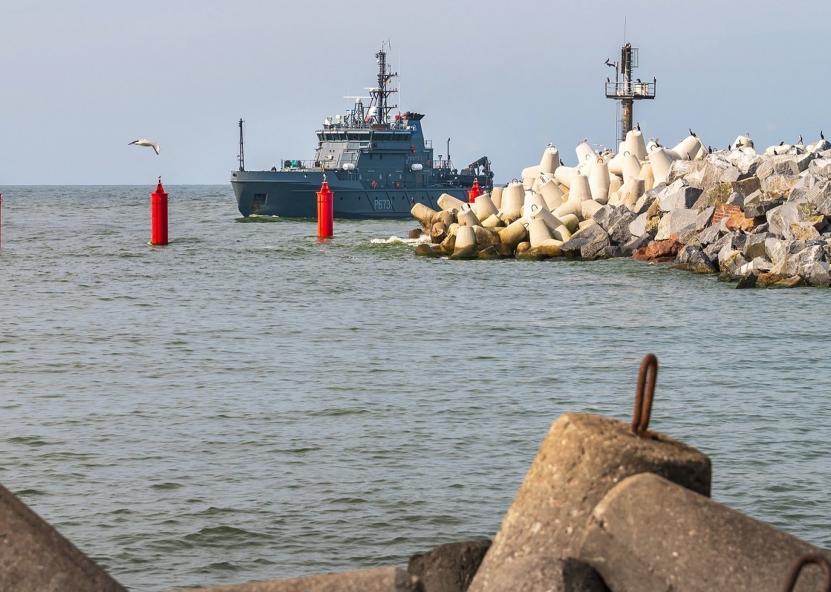Ship Ruby, carrying 20 000 tonnes of Russian ammonium nitrate, will not go to Klaipėda
„That the repairs will not take place in Klaipėda is practically clear. The ship will definitely not go to Klaipėda. Neither the date nor the place of unloading is known at the moment," Šileika told Elta on Friday.
„And we will certainly not keep the capacity concentrated on repairing this ship“, – he insisted.
The Western Shipyard was awarded an international tender to repair the „Ruby“ in early September. However, its CEO stressed that even then it was clear that the ship would have to be unloaded, as the saltie cargo would not be allowed to enter Klaipėda.
„When the ship's information was provided, it became clear that the ship would not be allowed to enter the port with such a cargo. The only question was whether or not it would land somewhere," he assessed.
The online vessel service „MarineTraffic“ shows that the ship is currently in the North Sea and is moving towards the port of Marsaslok in Malta, where it is due to arrive on 8 October.
On 11 September, „Delfi“ reported that the Maltese-flagged vessel „Ruby“, which was at the time moored off the coast of Norway, carrying 20,000 tonnes of saltpeter, had applied to the Port of Klaipėda for a refit. However, Norway, Sweden and Lithuania refused to allow it to enter their ports.
The ship „Ruby“ is currently returning to the Mediterranean Sea.
Ammonium nitrate is believed to be the cause of the disaster that occurred in the port of Beirut, the capital of Lebanon, in August 2020. Large quantities of the chemical have been improperly stored there for many years. More than 200 people were killed in a massive explosion that year.
With the ship still seeking to carry out repairs in Klaipėda, Prime Minister Ingrida Šimonytė said the ship would not be allowed to enter the port city with its cargo of saltpeter. However, Algis Latakas, head of the Klaipėda State Seaport Authority, has said that the port would accept an empty ship for repairs.
At the time, the Minister of Transport and Communications, Marius Skuodis, said that the situation was not exceptional and the authorities had taken the necessary decision.









































































































